Tax Treatment of Lump Sum Payments: Accounting Principles and Analysis
VerifiedAdded on 2020/03/13
|5
|731
|41
Homework Assignment
AI Summary
This assignment explores the tax treatment of a lump sum payment received by Connect IT, analyzing whether it constitutes taxable income under Section 6-5 of the ITAA 1997. The analysis considers relevant case law, including F C of T v Meeks (1915), Californian Oil Products Ltd v. FC of T (1934), and Allied Mills Industries Pty Ltd v. FC of T (1989), to determine the nature of the payment. The assignment evaluates the context of the agreement's cessation, the impact on Connect IT's business operations, and the potential for alternative business clients. It concludes that, based on the provided information and the application of relevant legal precedents, the compensation received by Connect-IT is considered income and is therefore taxable. The assignment provides a comprehensive overview of the issues, legislations and application of the law.
1 out of 5
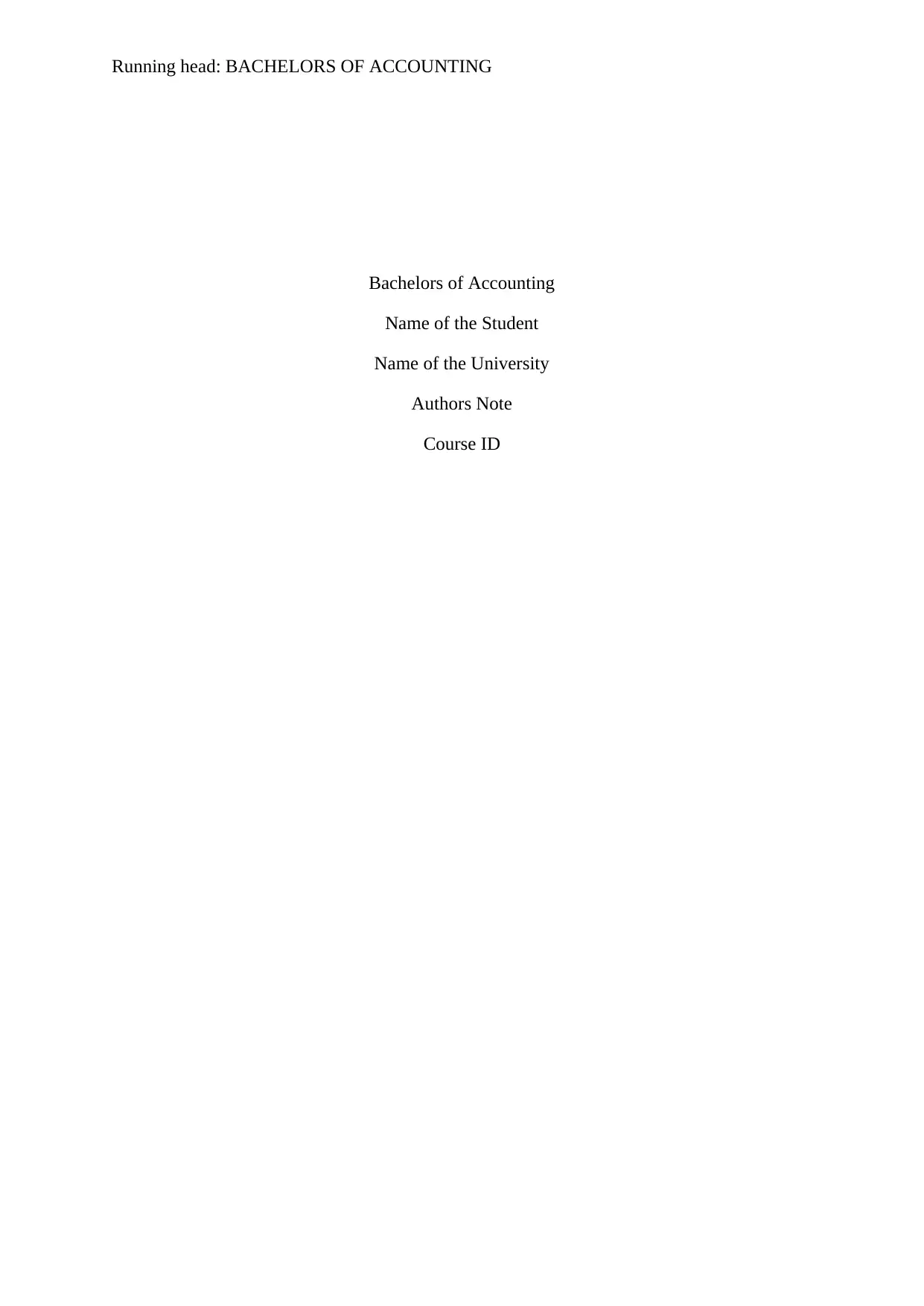
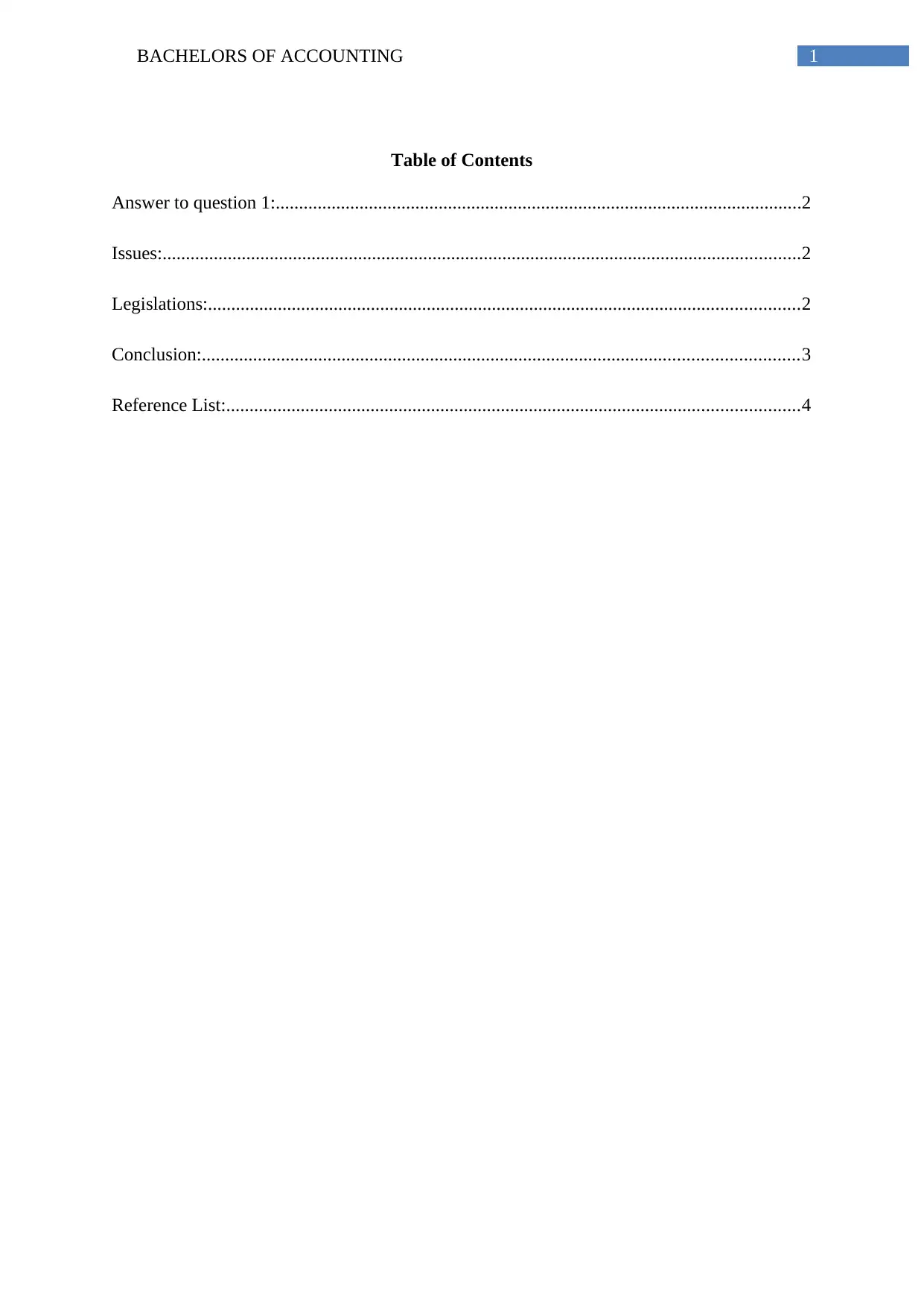
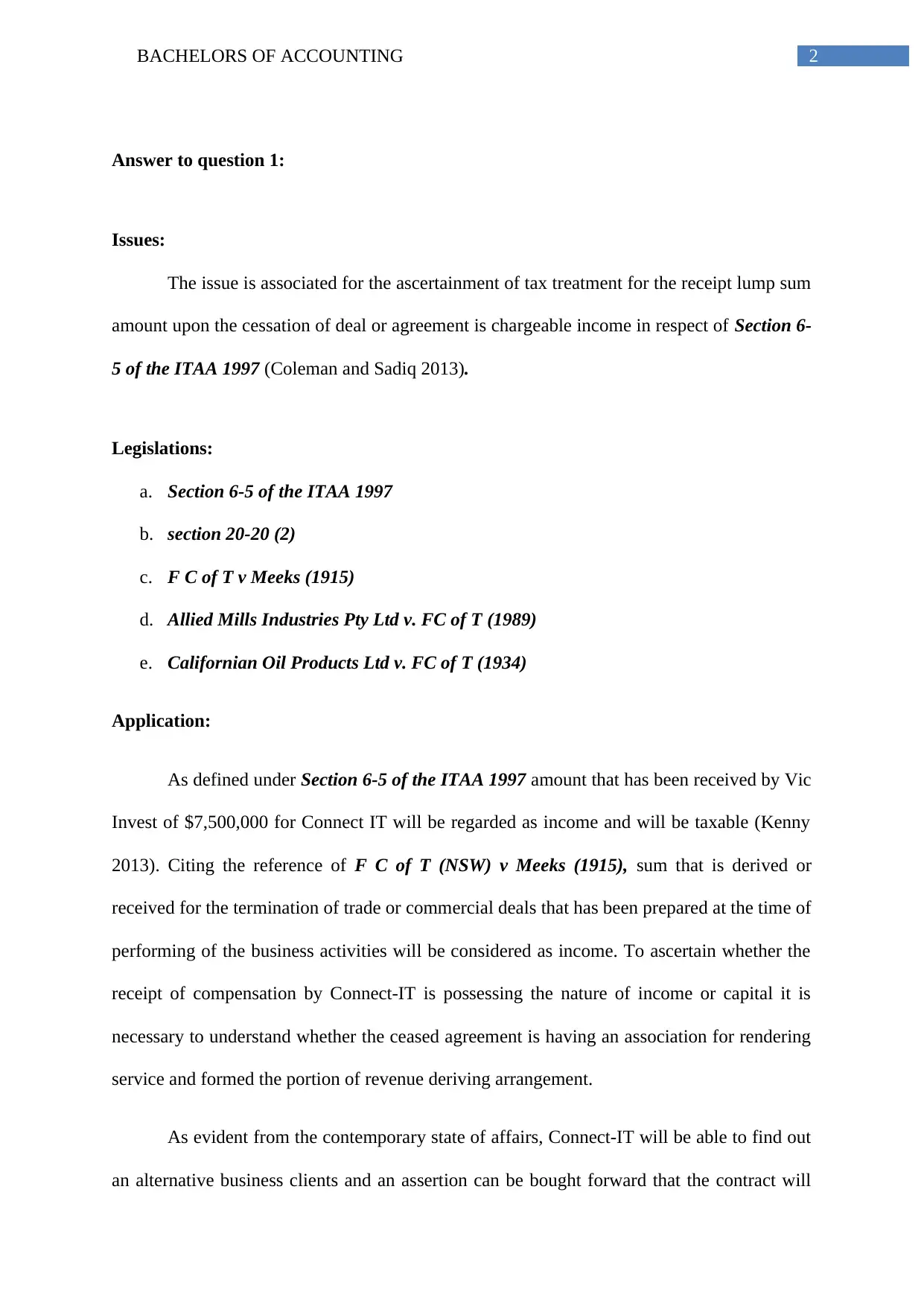

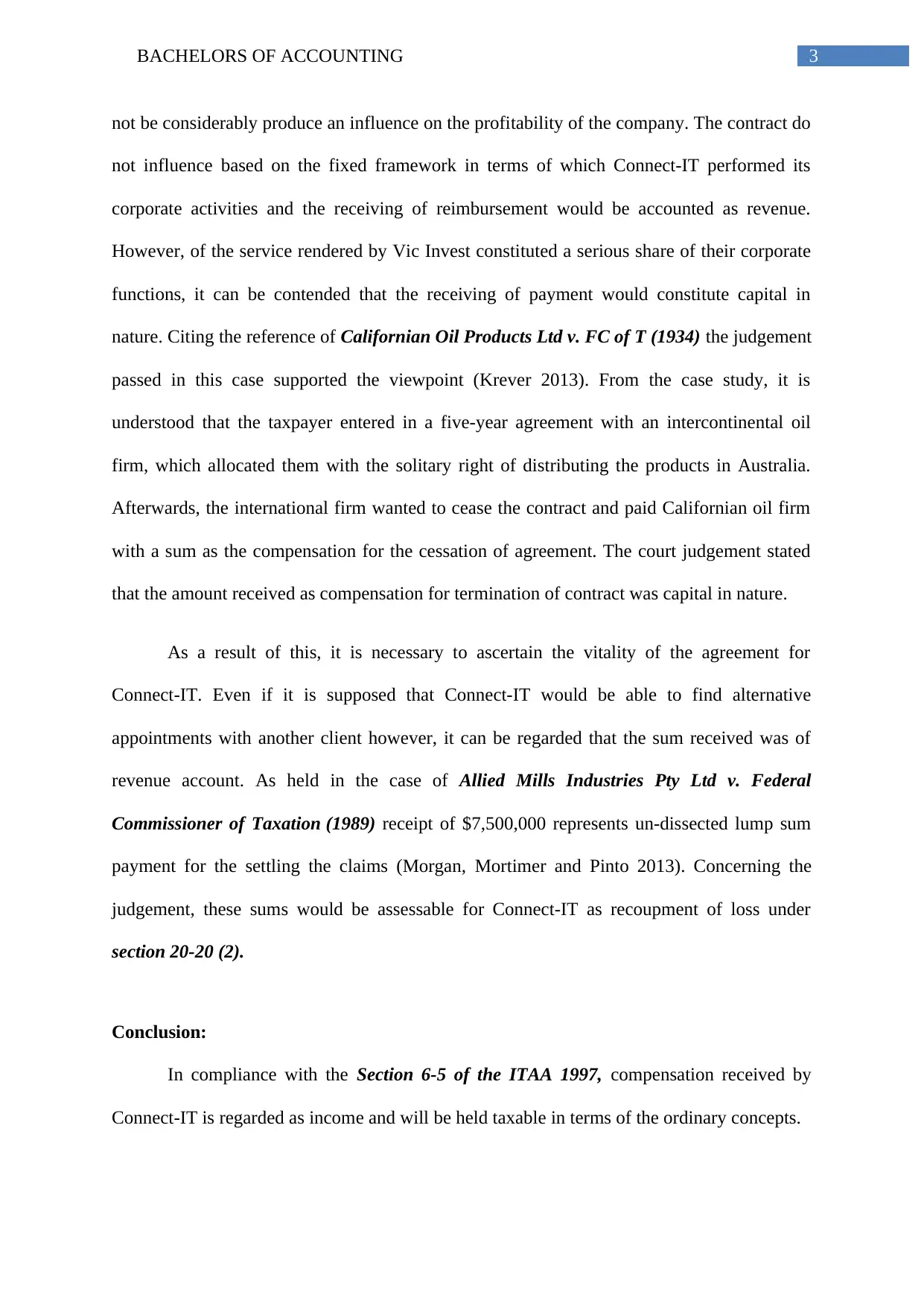
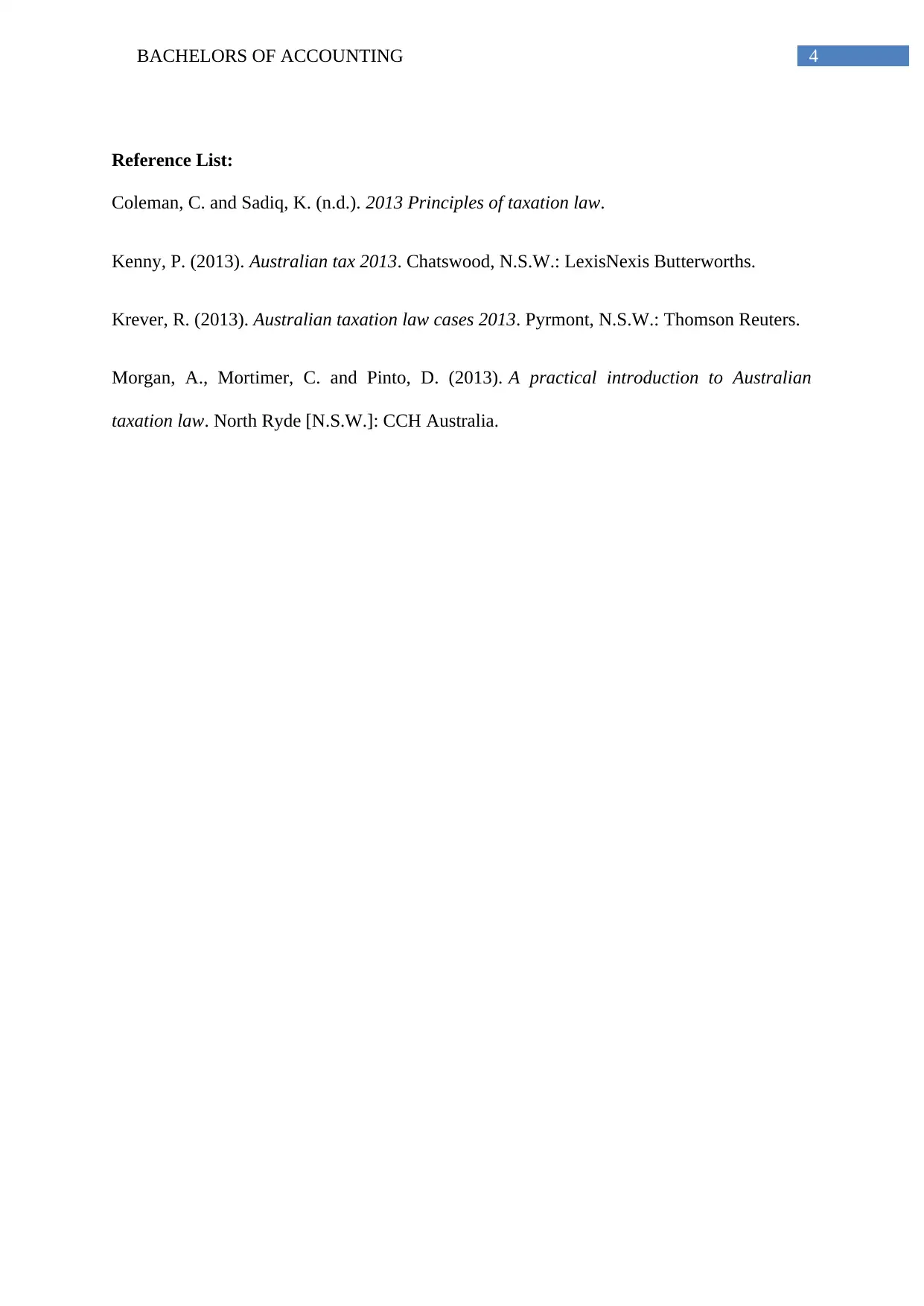






![[object Object]](/_next/static/media/star-bottom.7253800d.svg)